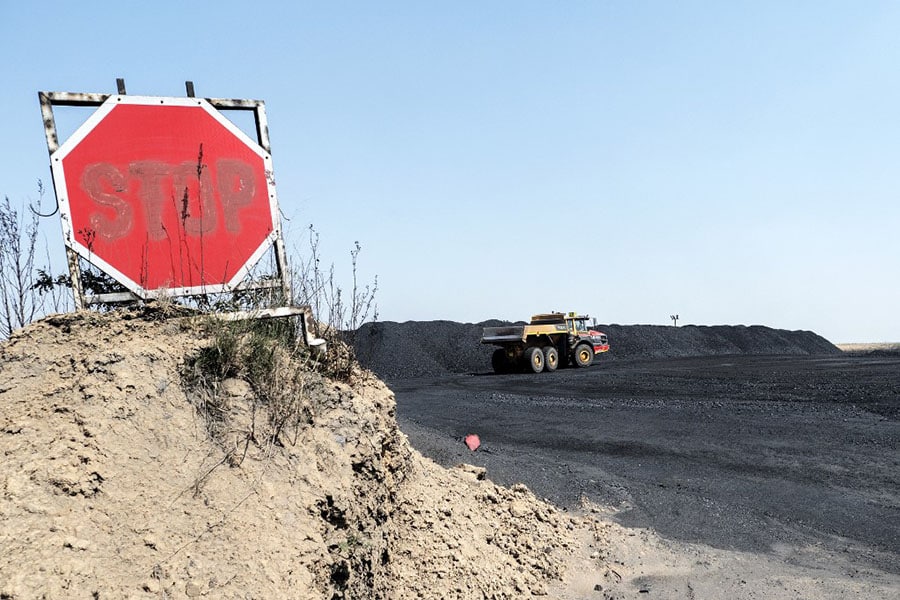
Green future is cause for worry in South Africa's coal belt
Coal is a bedrock of South Africa's economy, employing almost 100,000 people and accounting for 80 percent of electricity production. But the sector's future is uncertain, as Africa's most industrialised economy looks to wean itself off the carbon-emitting fuel in line with global efforts to tackle climate change
 A truck is seen in the Grinding Station of Khutala Colliery in Mpumalanga, on September 29, 2022. An hour's drive from Johannesburg, Khutala Colliery is among more than 100 coal mines and a dozen coal-fired plants that dot the industrial landscape of the northeastern province of Mpumalanga, an area known as South Africa's coal belt. Photo: LUCA SOLA / AFP
A truck is seen in the Grinding Station of Khutala Colliery in Mpumalanga, on September 29, 2022. An hour's drive from Johannesburg, Khutala Colliery is among more than 100 coal mines and a dozen coal-fired plants that dot the industrial landscape of the northeastern province of Mpumalanga, an area known as South Africa's coal belt. Photo: LUCA SOLA / AFP
Kendal, South Africa: Miner Thokozani Mtshweni, 37, looks spent as he readies for a 12-hour shift huddled under a carport shelter to avoid the scorching sun. He fixes his belt weighed down by an oxygen tank and gas detecting tools.
An hour's drive from Johannesburg, Khutala Colliery is among more than 100 coal mines and a dozen coal-fired plants that dot the industrial landscape of the northeastern province of Mpumalanga, an area known as South Africa's coal belt.
Workers kitted in soiled yellow overalls breathe in the hazy air as they wait to board trucks that will drive them to an underground shaft.
"Closing these mines would affect our lives a lot," Mtshweni tells AFP. "It would be chaos".
Coal is a bedrock of South Africa's economy, employing almost 100,000 people and accounting for 80 percent of electricity production.







